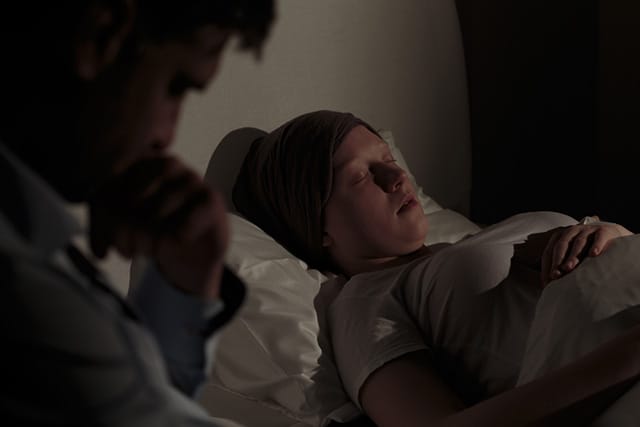It may sound like an ability wielded by a villain in a bad 1980’s action film or a gimmick in a low-budget video, but for those who suffer from it, Exploding Head Syndrome is no laughing matter. The sudden hallucinatory noises and sometimes even explosive sensations can leave them feeling shocked and surprised- never knowing when the next instance may strike.
What causes Exploding Head Syndrome remains a mystery, but it is a mystery which is continually being investigated in hopes of finding some sort of solution for those who can’t seem to get away from the explosions in their heads.
What is Exploding Head Syndrome?


People who suffer from it have varied symptoms but a few describe it as an explosion going off in their heads. Some say it sounds like a gunshot or even the crash of a cymbal. A small percentage of those who suffer from this particular syndrome have reported visual hallucinations such as lightning when an attack strikes.
Others have claimed they can feel an episode coming on with a tingling sensation which goes up their body. It’s often reported to happen to people while wide awake and also been observed 2 hours after falling asleep.
Because of its association with sleep, the strange phenomenon is classified as a parasomnia and a sleep-related dissociative disorder. Basically, it’s something which interferes with your sleep, and that’s something you don’t want to have.
Potential Causes
While we don’t know what causes Exploding Head Syndrome, that isn’t to say we don’t have some ideas about what it could potentially be. Every diagnosis begins with some amount of guessing, which is the case with this particular condition. Current ideas range from totally possible to outright wacky. Some people even go as far believing it’s something spiritual- that goes to show how rare this condition is.
The primary suspect is an issue within the reticular formation in the brainstem of those who suffer from the awful syndrome. This part of the brain deals with the transition from being asleep to being awake, so it would make sense, theoretically, that problems here could leads to what EHS sufferers experience.


Another theory involves stress and sleep issues. These people suspect emotional issues may be at the root of the problem, citing a decline in delta waves seen when people aren’t getting the right sort of sleep, which can often be brought on by stress, among other things.
Perhaps the strangest of the bunch, however, are those who don’t think that this odd occurrence is something natural at all. There are some out there who claim Exploding Head Syndrome is the result of energy beams being fired on people. Who is doing this? There’s no telling. Perhaps the government, or aliens, or people from the future who really want folks to have some rude awakenings.
Fortunately, the cause is still under investigation. The condition is strange, but one can imagine in time we’ll be able to better understand what’s happening and work to figure out a way to cure or prevent Exploding Head Syndrome in the future. As for now, there really isn’t any sort of treatment, though a few drugs have been tested to varying and inconclusive results. So, unfortunately, a lot of people suffer from the strange condition which sometimes lead to other sleep disorders.
Ways to Cope with It
Like any ailment, there’s plenty of ways one can cope or possibly cure it. While there’s still no known remedy to completely rid yourself of EHS, there are a few things you can try that will help. One is through medication. Clomipramine is a tricyclic antidepressant and, when taken properly, can stop most of the EHS symptoms.

If the problem is rooted in sleep deprivation, then you’ve got a little more work ahead of you. Fix your diet, get some exercise routine down pat, and make small steps to improve your overall sleep regimen. Things such as yoga, music that you can relax, a nice hot bath each night before bed, etc. are all easy things to incorporate into your life to better the situation. Over time, you should begin to see your EHS decrease.
Who Has Exploding Head Syndrome?
There is no direct answer as to who gets EHS. It seems, however, somewhere between 10 to 15 percent of the population experience it at some point or another in their life. Due to lack of credible studies when trying to figure all this information out, that’s about as good as we can get at the moment.
One study conducted on a group of college students did find that some 13.5 percent of them reported having experienced the strange happenings at least once, and those who also suffered from bouts of sleep paralysis experienced it more often than others.
Medical professionals have been looking into EHS for quite some time, with the first instance of it being found as far back as 1876 in a case report which called it “sensory discharges.”
What Does It Feel Like?
To someone who hasn’t experienced EHS, the condition could very easily seem made up. For those who have experienced it, however, they speak of loud noises which seem to wake them in the night. For some, they are left looking around, trying to find the cause of the noise.
Others who have become used to the interruptions in their sleep may simply loathe the condition, possibly even avoiding sleep so as to avoid having to deal with an episode.
Conclusion
For some, this unfortunate disorder is a short-term thing, only occurring once or twice. Others may experience attacks for anywhere from days to years, and sometimes throughout their lives. Attacks seem to vary, with no way to determine or track when one may occur.
Some patients experience an attack every couple of days, some a few nights in a row and then never again, and others at random intervals. Because of things like this, Exploding Head Syndrome is a cause of great distress for many who seek to simply have a good night’s rest.






